SERBIA:Pressure on Serbian PM over war crimes transfers
On the defensive over a spy scandal, Serbia's prime minister now faces key tests -- does he dare to send suspects to the U.N. war crimes tribunal to keep U.S. financial aid flowing and does he have the means to do so?


(22/3/2002)BELGRADE (March 22) - On the defensive over a spy scandal, Serbia's prime minister now faces key tests -- does he dare to send suspects to the U.N. war crimes tribunal to keep U.S. financial aid flowing and does he have the means to do so? Deciding whether to transfer Serbs to the tribunal is a difficult dilemma at any time for premier Zoran Djindjic, who faces accusations of treachery if he orders handovers and the ire of vital Western donors if he does nothing. But his position is even tougher after last week's Cold War-style scandal, in which plain clothes military police stormed into a motel restaurant and arrested one of his deputy premiers and a U.S. diplomat on suspicion of espionage. Djindjic tried to limit the damage by securing the resignation of Deputy Premier Momcilo Perisic, an army chief of staff during the rule of Slobodan Milosevic, who has insisted he is innocent of the accusations against him. But Djindjic and his government have been tarnished by the scandal while his arch-rival in the disparate alliance which ousted Milosevic in October 2000, the more nationalist Yugoslav President Vojislav Kostunica, basks in successes. Kostunica, a critic of the tribunal in The Hague, has taken credit for the counter-intelligence sting as the army reports to him. And he played a key role in a recent deal to keep Serbia and Montenegro, Yugoslavia's two republics, inside one state. While Djindjic's political standing at home makes it harder for him to act, outrage in Washington over the treatment of the U.S. diplomat means the United States is in no mood for soft-pedalling as a deadline for a decision on aid approaches. ''The improper arrest of a U.S. diplomat in Belgrade has dramatically demonstrated that the Yugoslav federal government and military establishment remain entirely unfit for Western support and cooperation,'' the Washington Post fumed this week. ''It's...raised the bar a little higher in terms of what needs to be done,'' one Western diplomat said of the incident. DEADLINE LOOMING Under U.S. legislation, the Bush administration must certify by March 31 that Serbia has met a series of conditions -- including cooperation with the war crimes tribunal -- or it has to suspend around $40 million in financial aid. Apart from freezing the cash, a decision not to certify could also mean the U.S. opposing much-needed loans from international financial institutions and signal to investors worldwide that Yugoslavia is back on the West's blacklist. Faced with that prospect, many analysts expect Djindjic to try to force some handovers before the deadline. ''In the near future, we will do something which will increase the rating of our country,'' the premier said somewhat cryptically on a visit to the western town of Valjevo on Thursday. ''We will cooperate in a familiar way.'' With Kostunica in the ascendancy , Djindjic could also be keen to prove he still has his hands on enough levers of power to carry out the arrest and transfer of war crimes suspects. But it may not be easy to find volunteers to carry out the operations. The war crimes tribunal has few fans among the Yugoslav and Serbian armed forces, some of whose members fear they could end up there themselves one day. The military has never handed over any of its members to the tribunal. And a crack special police unit, known as the Red Berets, staged a revolt in November when they discovered they had unwittingly arrested two suspects for transfer to the court. USUAL SUSPECTS? Some analysts believe Djindjic may still be able to rely on at least part of the police force. Even if he can, he must then decide who to transfer from the tribunal's wanted list. The most frequently mentioned candidates in local media reports are suspects indicted with Milosevic on Kosovo war crimes charges, such as former Yugoslav deputy premier Nikola Sainovic and Serbia's ex-interior minister, Vlajko Stojiljkovic. Other possibilities include less high-profile suspects such as three former army officers accused over atrocities committed during the capture of the Croatian city of Vukovar in 1991. The toughest nut to crack would be General Ratko Mladic, the Bosnian Serb wartime commander who has been indicted on the tribunal's gravest charge of genocide and is thought to spend at least some of his time in Belgrade. Mladic is believed to be heavily guarded and is reported to be ready to die rather than go to The Hague. But Djindjic is not averse to risks. He approved both the spectacular arrest of Milosevic and the former president's subsequent transfer to the tribunal despite opposition at home. ''Djindjic will probably proceed in the direction of transferring war crimes indictees to The Hague,'' the VIP daily newsletter on Yugoslav affairs said on Friday. ''The most he can do is transfer...Mladic to The Hague. This would provide the Serbian premier with undivided sympathies from the West,'' the often well-informed publication commented.
//Shqiptarja.com
 Sondazhi i ditës:
Sondazhi i ditës:
Anti-berishistët mbledhin firmat për partinë e re, a do të mbështetet?
-
Po
52.6%
-
Jo
36.9%
-
Nuk e di
10.5%
Vota total: 2746
Votat totale janë unike

Lajme të tjera
-
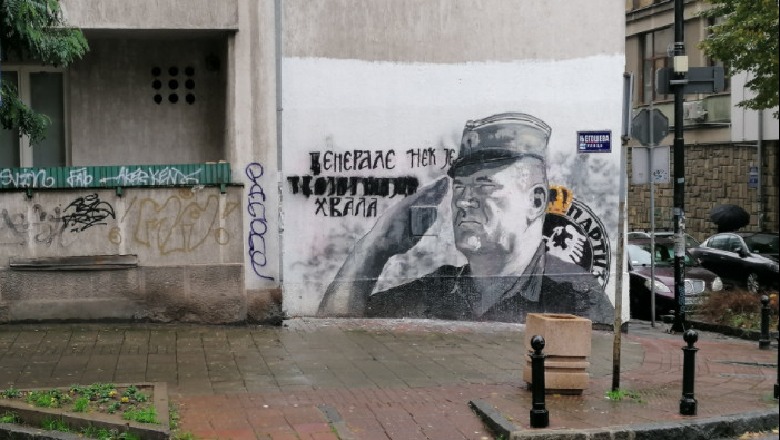
KE i bën thirrje Serbisë: Hiqni muralin kushtuar Ratko Mladiçit
20 Nëntor 2021, 08:24
-
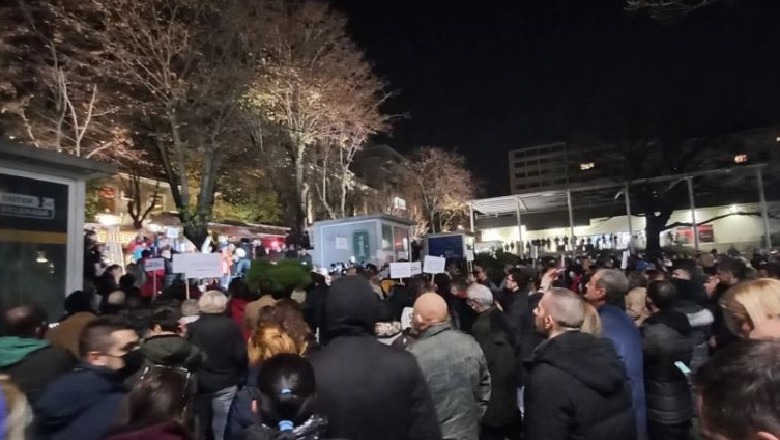
Murali i Mlladiç në mes të Beogradit, nis protesta për heqjen e tij! Qytetarët: Koha që Serbia mos të mohojë gjenocidit në Srebrenicë
13 Nëntor 2021, 21:18
-
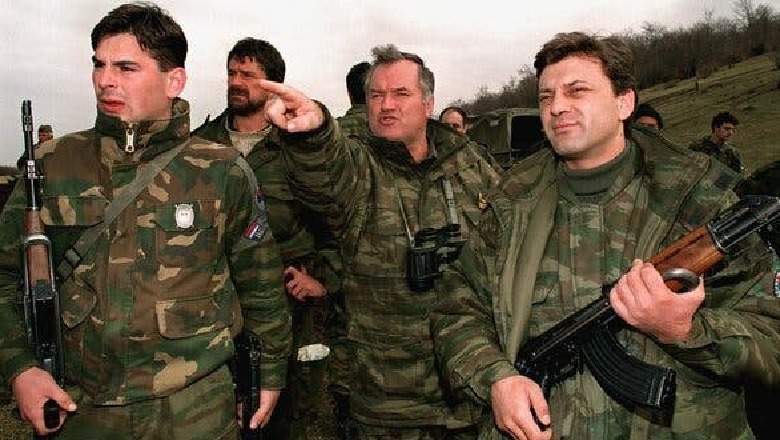
Burg përjetë për' Kasapin e Bosnjës' familjarët e viktimave: Si nënat e Srebrenicës edhe ai do të jetojë pa familjen! Media: Mbyllje e kapitullit të përgjakshëm të historisë
9 Qershor 2021, 10:38
-
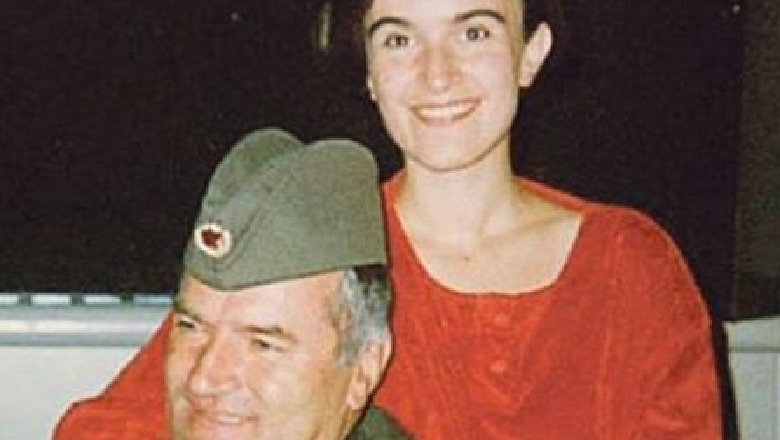
E vetëvrara e Ratko Mladiçit
9 Qershor 2021, 07:15
-
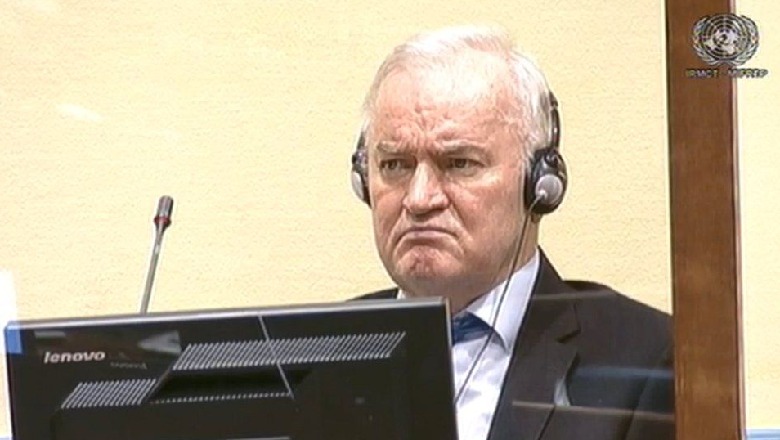
Ekzekutori i të paktën 8000 të pafajshmëve, dënohet përfundimisht me burg përjetë për gjenocid 'Kasapi i Bosnjës', Ratko Mlladiç
8 Qershor 2021, 16:36
-
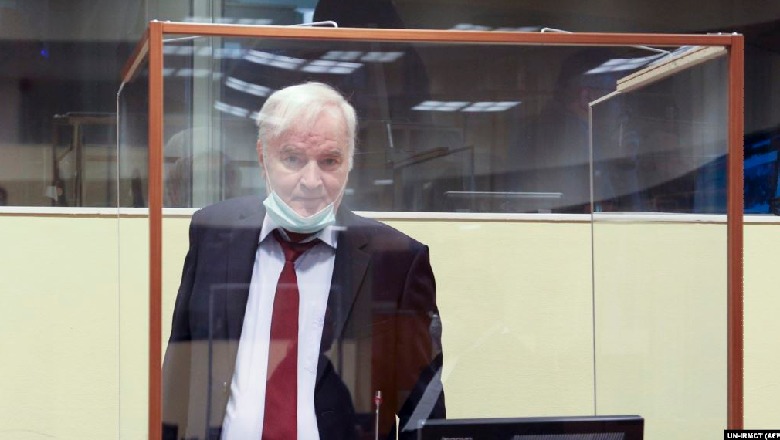
Gjyqi në Hagë, ish-gjenerali serb Mlladiq thotë se ka punuar 'me ndershmëri' në paqe dhe në luftë
26 Gusht 2020, 22:33
-
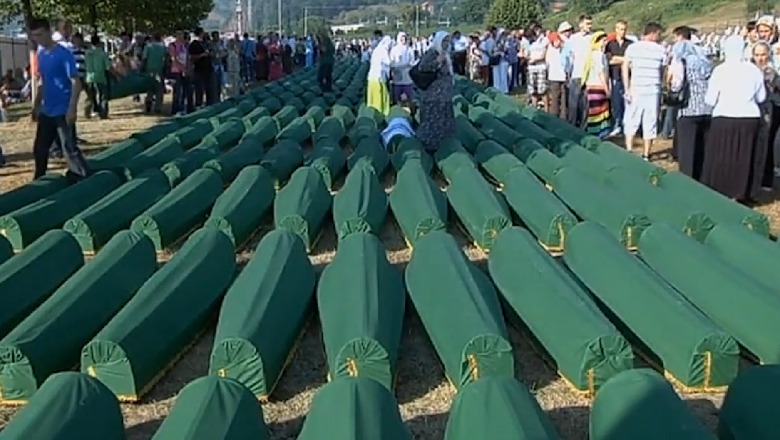
Plagët e hapura të Srebrenicës dhe gjenocidi i 25 viteve më parë
9 Korrik 2020, 11:20
-
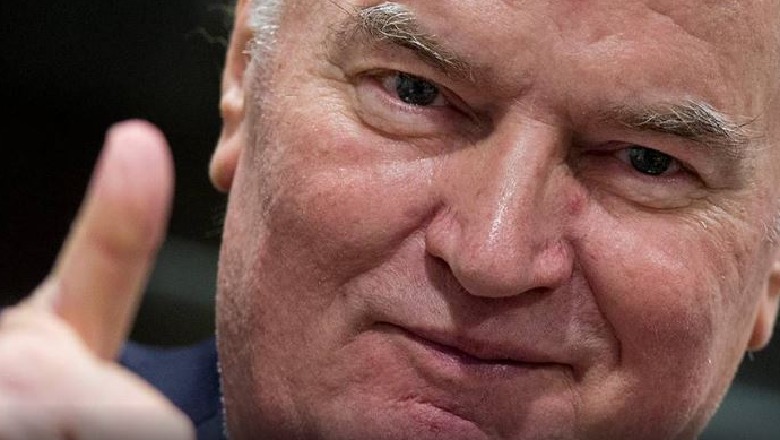
Gjykata e Hagës: Informacioni mbi vdekjen e Ratko Mladic është i pasaktë dhe ne e mohojmë atë
11 Shkurt 2020, 15:07






